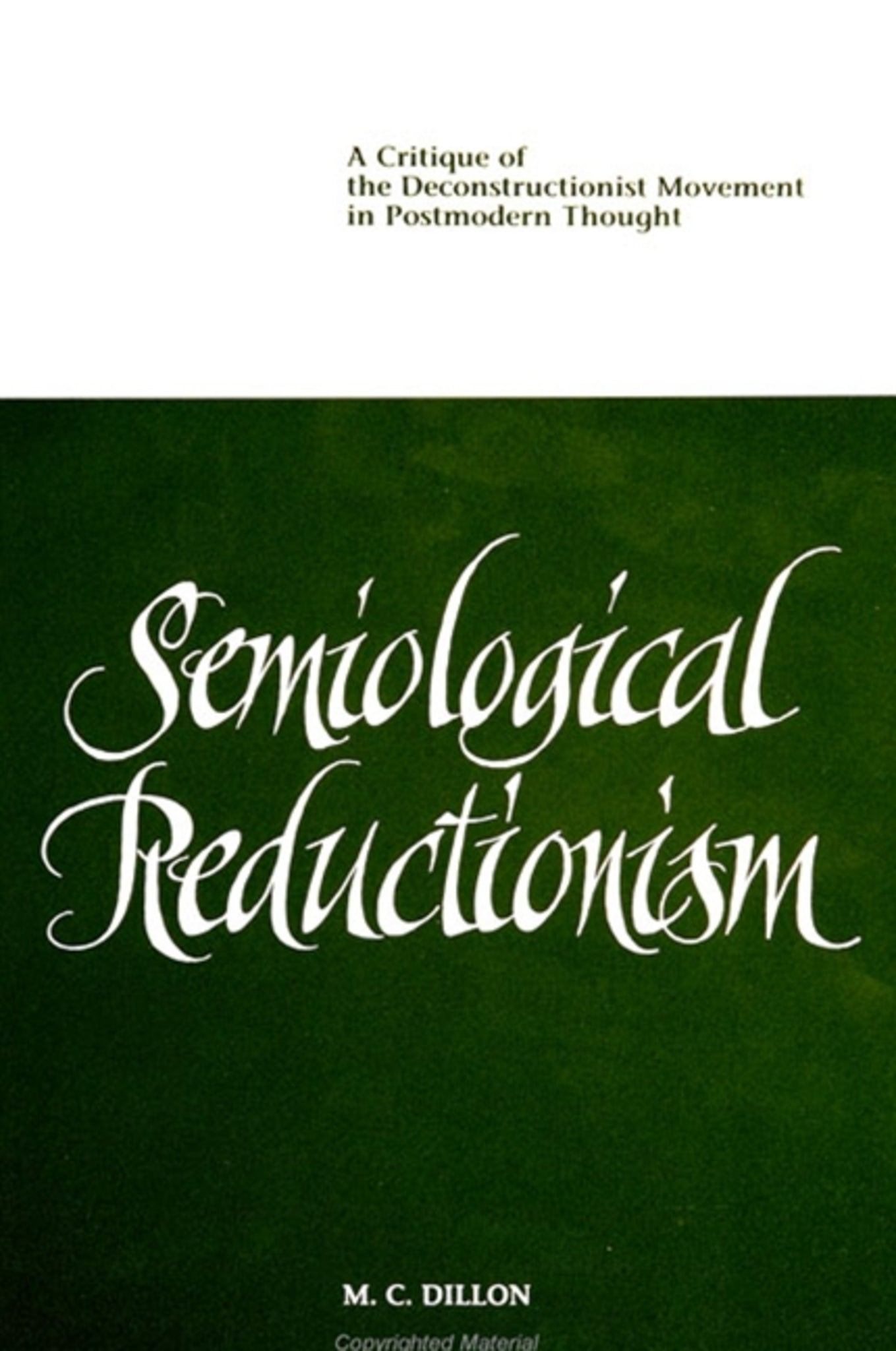We're sorry. An error has occurred
Please cancel or retry.
Semiological Reductionism

Some error occured while loading the Quick View. Please close the Quick View and try reloading the page.
Couldn't load pickup availability
- Format:
-
01 July 1995

This critical interpretation shows Derridian thought to be permeated by a semiology that reduces all meaning to the signification of signs thus challenging the philosophy of deconstruction at its roots.
This book interprets Derrida and looks beyond deconstructionism. It is a critique that identifies a pervasive flaw in Derrida's thinking: the semiological reduction that permeates deconstructionist theory and postmodernism in general. The critique focuses on Derrida, but its conclusions may be applied to other major figures in the postmodern tradition who espouse the variant of Saussurean semiology that reduces all meaning to the signification of signs. This book challenges the philosophy of deconstruction at its roots, and does so on the basis of a diligent reading of central texts and an understanding of the tradition of Continental philosophy providing the context for Derridian thought.


Acknowledgments
Introduction
I. Time
1. The Metaphysics of Presence
2. Temporality
II. Truth
3. The Circle and the Abyss
III. The Unconscious
4. The Derridian-Freudian Unconscious
5. The Unconscious: Language and World
IV. Desire
6. Ungodly Desire, Unnatural Desire
7. Decrypting Desire
Conclusion
Notes
Bibliography
Index



